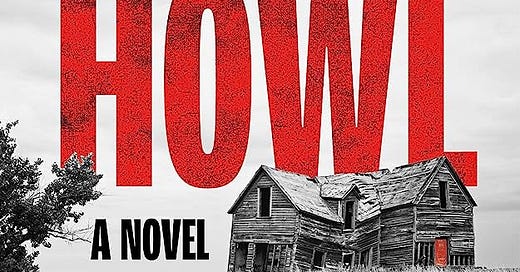Lyle Edison is a man who abandoned his past. He was born with a different last name, but when his father confessed to being a serial killer, he chose to take on a new identity. Even if he had to use less than legal means to do it. Icarus is a man who claims his past is not of this world. Whether this is true, or he’s simply a man who’s lost his mind, is uncertain. What is certain is that Icarus somehow knows Lyle’s birth name and things about his past that even Lyle was unaware of. When Icarus confronts him with this information, it throws Lyle’s new life into chaos.
“He was no longer Lyle. His father was a killer and now he was Junior to everyone.”
Throughout the book, Lyle and, to a lesser extent, Icarus struggle with their identities. Lyle, despite spending years under his assumed name and identity never feels fully comfortable with it. As a result, his life ends up being full of crime, confrontations, and desperation.
The justice system seems just as hellbent on corroding Lyle’s identity. After he’s framed for drug dealing, he manages to get off with probation, but with an officer determined to make his life miserable. The constant reassurances that Lyle is guilty of something constantly weighs on him, even when he seems to have left his old life of presumed guilt behind. Despite the system supposedly trying to help him, it dehumanizes him to the point of desperation for something better.
Icarus follows a similar path through a system that sets him up to fail, despite meeting doctors and social workers who take him off the street when he seems to fall from the sky with no clue to his past who do everything they can to help. Even when being put on a medication that keeps him on an even keel and stops him rambling something called the Mother Howl, he inevitably backslides when he can’t pay for it anymore due paperwork hold ups keeping him from getting the money he needs.
Despite Lyle’s struggles with relationships of any kind, he eventually finds himself able to lean on his partner Sera. Sera, another person with an incredibly uncomfortable relationship with their past, gives him footing. Especially when she gets pregnant with their daughter.
When the stories of Lyle and Icarus intersect, it reveals things that Lyle never knew about his past. It makes him realize that there's a chance he may be able to provide for his wife and child with no more worries, no more running from who he used to be. The problem is, if it doesn't work out, he'll lose everything.
The first half of the book is rather slow, but well done, focusing on the lives of the characters involved. The second half is when the book really hits its stride. Throughout, Craig Clevenger effectively creates an atmosphere of a gray, bleak, and cruel world that beats down the people who live it. As Lyle learns more about his past, the story carries a sick sense of dread as everything seems on the verge of collapsing for him.
The titular Mother Howl refers to a supernatural, god-like being that Icarus believes himself to be a messenger of. Whether he actually is or not, it’s difficult to say. There’s little that separates his belief in the Mother Howl when he first appears and his belief in the Christian God when he’s seemingly medicated back to “normal.” Even knowing what he does about Lyle’s past could be explained by a connection to his family that he knows nothing about. Even so, Clevenger does an excellent job of getting inside his head, showing his distorted (or perhaps correct) view of the world and how it transitions to a more “normal” way of seeing things and back.
Mother Howl is Craig Clevenger’s first book since 2005 and appeared in excerpts throughout the years. While I can’t speak to if it was worth the wait tonight, I’ve not been aware of Clevenger that long, I can say that his work on it over the years paid off. This is a well-crafted piece of dark fiction about people carrying the scars of their past in a dark world determined to reopen them and infect them. It walks a line between dirty realism and horrific surrealism. It gives a sense of sick dread in one’s stomach, but keeps one wanting to turn the pages. Clevenger’s return to the novel form is a strong one.




